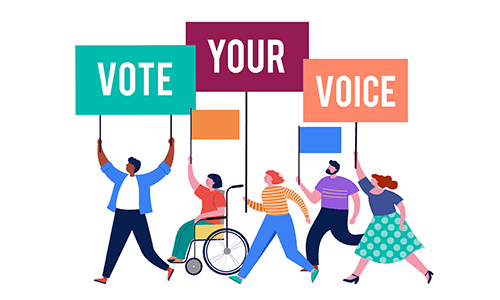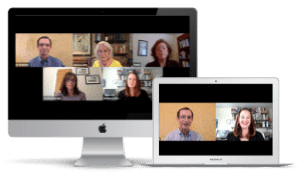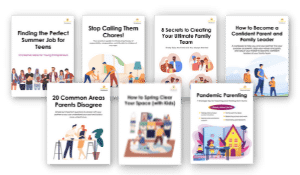- Home
- »
- Family Bonding Challenge
- »
- Talking to Kids about...
Talking to Kids about Local Elections and Voting

Age: 4+
Time: 10–30 minutes
Materials: local elections ballot
Focus: deepen connection with the community
Family Bonding Challenges focus on building stronger connections within your family while helping your children learn important life skills. When you subscribe, you will get a fresh calendar each month filled with ideas for celebrating fun family holidays and unique weekly activities.
It’s a mistake to believe that our children can’t understand what’s going on in broader society. Even if at different levels of understanding, they experience the world around them in deep and complex ways.
Just as it is our duty as citizens to vote, it is our duty as parents to share with our children why it’s important and why we care.
Use your local elections ballot to share examples about the mechanics of voting (the process, what type of information we get in our voter guides, how we individually make decisions).
Depending on what’s on your ballot, you can discuss the following:
- How the people in charge of your community (mayors, city council members, city managers, state governors, etc.) run in races and are elected.
- What a law is, who writes it, and how it gets enforced (driving laws, for example).
- What taxes are and what they pay for (schools, roads, and libraries, for example), which is especially important in state and local elections. Understanding how elements of your community are created and maintained is a valuable part of deepening your family’s community engagement.
- The way democracy works in our society. As your children mature, you can introduce more complex ideas and the nuances of compromising and negotiating.
Adjust the level of conversation to be age appropriate. The important thing is to include children in the conversation.
Don’t make it about partisan politics if you possibly can. Make the discussion about citizenship and how voting in all elections, especially local elections, is a way we show our commitment to each other.
Tips to Make Local Elections More Personal
-
Make it a field trip.
At least once in their young lives, take your children to a voting center. Even if you generally vote by mail, going to an actual voting center can make a big impression on your child by showing them that other people in the community are also involved and committed to the process.
-
Review your sample or mail-in local election ballot.
If going to a voting center isn’t feasible, review your sample ballot at home. If your state votes on initiatives, explain the parts and pieces of how each measure or initiative is created. Look here for a refresher.
-
Include amendments to the constitution, and how so many people are still fighting for the opportunity to do so.
-
Depending on your child’s age and interest, you may choose to leave out the details of political parties and your affiliation. The goal is to communicate that every person has the right and responsibility to make their voice known.
Join the Community!

Get Excited About Your Future
Delight your inbox with monthly lessons carefully chosen to help you grow as a proactive parent who's always looking to learn more about raising a strong family team.

Monthly Live Engagement
Join our monthly live chats to discuss each month's topic in-depth and get all your questions answered.

Worksheets and Guidebooks to Grow Better Together
Members receive many of our guides for free and access to deep discounts to the entire collection to continue growth and development together.
Somer Loomis
Somer is the Chief Content Officer at Raising Families, living in Southern California with her husband, nine-year-old son, and four-year-old daughter. She spent 10 years in the architecture field as a designer and medical planner, and now applies her love of integrative thinking and big-picture planning to her family and career.
In her free time, she loves cooking new recipes her children will never eat and saving craft projects on Pinterest she will likely never do. Nevertheless, she persists. Read full bio >>
Get your free Family Bonding Challenge Calendar sent directly to your inbox!


